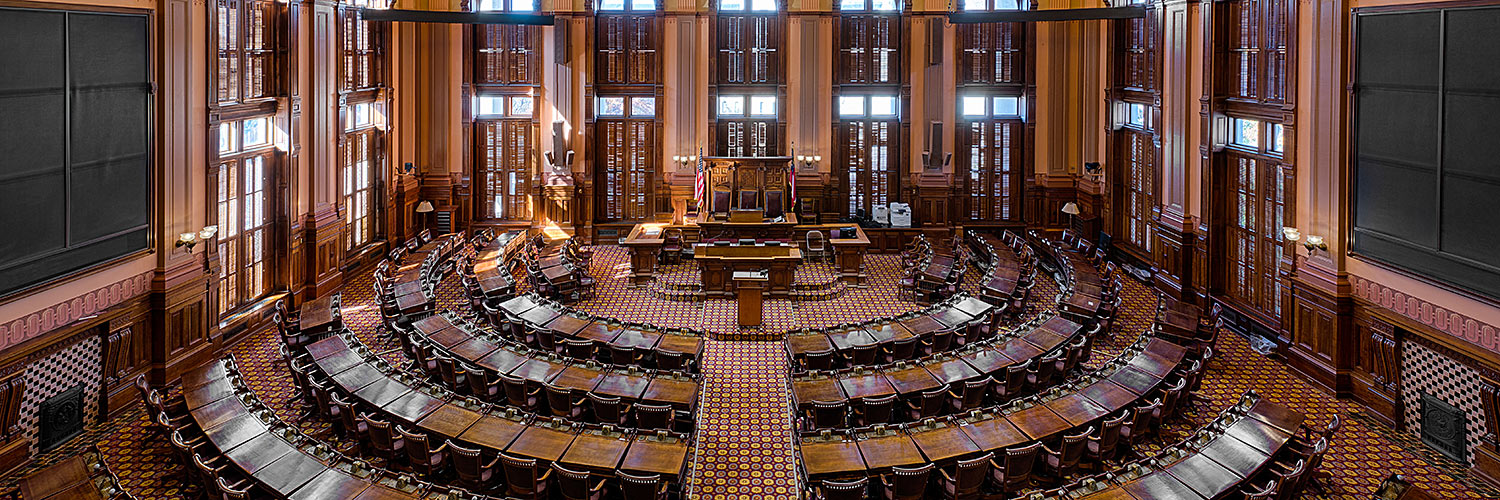As of press time there are more than 2,600 pieces of legislation that have been introduced in the state Legislature, with more than 380 bills with potential or direct impact to credit unions actively monitored, lobbied and addressed. And with the session being only on day 14 of 40, this list of issues will grow exponentially! Some of the activity of note from this week includes (in addition to H.B. 780):
Appraisal Management Companies: H.B. 775 by Rep. Alan Powell (R-Hartwell) seeks to bring Georgia law on regulating appraisal management companies into compliance with federal statue. And while it’s couched as a nationwide effort to bring state laws on par for federal regulations, buried in the bill is a small section that defines federally regulated appraisal management companies in a manner that would not include credit unions with other financial institution-owned appraisal management companies. Work is already under way to analyze the issue and potentially amend the current bill to include credit unions.
Cybersecurity: One of the cybersecurity bills in the state Legislature, S.B. 315 by Sen. Bruce Thompson (R-White), was debated in a Senate Public Safety Committee hearing on Wednesday, January 31st. This is the bill that seeks to address data breaches by criminalizing the unauthorized access of computer systems. GCUA has been in dialogue with Sen. Thompson on this issue prior to the start of the session to ensure that credit unions are not tasked with unneeded burdens while still protecting data as the bill moves forward in the process.
Elder Abuse Protections/Power of Attorney Reform: Dialogue continues with Rep. Chuck Efstration (R-Dacula) on potential changes to the power of attorney law. Rep. Efstration sat down with credit unions and other interested parties this week to ensure that the technical changes from the 2017 power of attorney overhaul are workable for financial institutions. An official bill is pending as of press time, but the multiple early drafts have been positive. This issue will be addressed closely and often during the session to ensure that credit union operations are protected against attempts to add greater liability to financial institutions, while ensuring the ability of authorities to investigate and prosecute financial elder abuse and fraud.
HOA Issues: This week saw the introduction of two bills to overhaul the condo/homeowner association law (H.B. 748 by Rep. William Bodie D-East Point and S.B. 374 by Sen. Donzella James D-Atlanta). These bills will be monitored closely as they create an avenue for HOA interests to attach language they have been pursuing to supersede the priority lien status of financial institutions. In addition, a bill from last year, H.B. 410 by Rep. Alan Powell (R-Hartwell), was addressed in a House Judiciary hearing on January 31st to regulate what information HOAs share in letters requested for mortgage closings, and what fees could be charged. While the bill remains in the committee for another hearing, much work continues to protect credit union operations, as the interest of the HOAs has been language in a substitute bill version that would create an avenue for their companies to supersede the lien status of the lender.
Improvement Zones: S.B. 358 by Sen. Michael Rhett (D-Marietta) was heard in a Senate Banking hearing on January 30th. This bill seeks to create banking improvement zones designated by the Department of Community Affairs, with the intent to encourage branches in areas where there are few options for financial institutions. The bill encourages cities and counties to utilize public funds as a quasi-incentive for banks, but is problematic in its application and the expectations it sets and was tabled in the hearing; it is not anticipated to move forward.
Regulations: S.B. 338 by Sen. William Ligon (R-Brunswick) was debated in the Senate Judiciary hearing on January 31st, and has moved forward to Senate Rules. This bill seeks to implement changes to how the state Legislature can put a halt to proposed regulations to any state agency, and how new rules and regulations are proposed. This will continue to be monitored closely to ensure that credit unions, and any regulatory changes sought by credit unions, are not disparately impacted in this process.
Tax Liens: The full House passed H.B. 661 by Rep. Bruce Williamson (R-Monroe) on Monday, January 29th with no changes; this is the legislative reaction to the special hearing on November 27th that “stayed” the Department of Revenue’s (DOR) proposed rules as they apply to creating an electronic database for tax liens. However, the proposed rules went much farther (applied a new step that would require a certificate of clearance on all deed transactions). H.B. 661 is to change the law to prevent the previous DOR rules from being proposed again later and to eliminate the need for a certificate of clearance. This bill was quickly addressed this week in the Senate Finance Committee in a hearing on January 30th and is awaiting selection by the Senate Rules Committee for consideration.
Towed Vehicles: H.B. 773 by Rep. Alan Powell (R-Hartwell) seeks to rewrite the towed-vehicle law so as to allow a streamlined process for abandoned vehicles to be disposed. GCUA worked with the interested parties last year on a similar bill to ensure that the lienholder notification remains intact, and this new version of the legislation retains the notice. However, this will continue to be watched carefully through the process to protect auto lending operations.


























